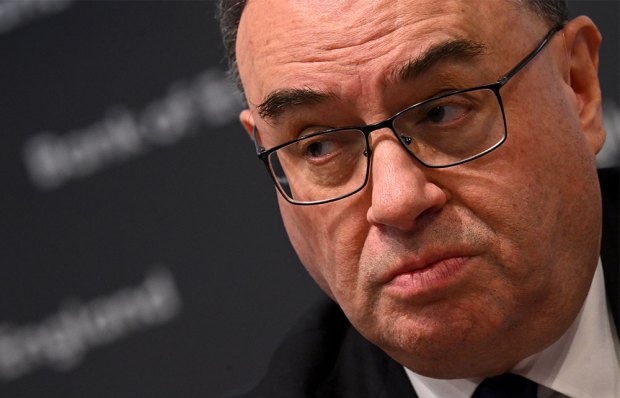If the phrase ‘stranded asset’ hasn’t yet entered your vocabulary, here’s a useful example of what it means. The 178 million barrels of oil in the Cambo field west of Shetland may stay there for ever because of government shilly-shallying over whether and when to end exploitation of the UK’s remaining hydrocarbon resources — while we import equivalent volumes of oil or gas from the Middle East, Norway and Vladimir Putin’s Russia, just to keep our lights on.
Shell — which had a 30 per cent interest in Cambo but is under pressure from shareholders, activists and regulators to accelerate its shift to cleaner energy — has pulled out of the project on the grounds of its ‘weak economic case’ and ‘potential for delays’, the latter obvious code for lack of faith in political support. Scotland’s Nicola Sturgeon, now power-sharing with the Green party, has said Cambo should not win approval from the UK Oil and Gas Authority (an agency of BEIS), having presumably calculated that she will look doubly virtuous if Whitehall ignores her and Scotland wins 1,000 new jobs from the go-ahead.
Meanwhile, the other 70 per cent of Cambo belongs to Siccar Point Energy, a company you’ve never heard of that’s backed by the private equity giants Blackstone and Bluewater. And as the Financial Times has pointed out, there’s growing uneasiness about ‘brown assets [becoming] private capital’s dirty secret’: that is, private investors less sensitive to political and media pressure buying up oil and gas projects with which public companies can no longer afford to be associated. In short — if this is how you see it — the planet still suffers while unseen actors reap the profits of sin.
Does that make an overwhelming case for stranding Cambo and other UK oil reserves in the hope of driving investment towards wind, tidal, solar and nuclear? You’d have to be a super-optimist to believe we can make that leap without a couple of decades of reliance on imported carbon fuel. Better to encourage responsible operators like Shell to stay in the game until our energy future is secure. But don’t expect our current government to do anything other than spout green rhetoric and prevaricate.
Femme fatale
The media has been making merry with the elevation of 37-year-old Marta Ortega Pérez to the chairmanship of Inditex, the world’s biggest fast-fashion store group and parent of the Zara brand. Marta is the youngest of three children of multibillionaire Amancio Ortega, Inditex’s 85-year-old founder and majority shareholder — and every report compares his dynastic saga with Succession, the television drama in which the sons and daughter of monster media tycoon Logan Roy manoeuvre for his crown.
Conventional governance would of course require the board of Inditex — listed on Spanish exchanges with a market value of €90 billion — to hold a transparent selection process, balancing minority shareholder interests against those of the Ortegas and heeding stock-market opinion, before making the chair appointment. But look at it from Amancio’s point of view. Inditex is his life’s work and was worth just €9 billion when he floated it in 2001, so investors who backed him have done pretty well. Neither of Marta’s half-siblings work in the business; the only other internal contender was her mother’s brother; and sources in the know say ‘it was always going to be Marta’, who started work in a Zara shop at 23 and is still young enough to think like her customers. The shares dipped on news of her elevation but it’s really no big surprise or drama.
On the shopping list
More change in the retail sector. First, the impending takeover of Selfridges by the Chirathivat family of Thailand. There were fears that Selfridges’ current owners, the Anglo-Canadian Weston family, might sell to mainland Chinese interests or high-bidding private equity, either of which could have ruined the Oxford Street emporium. So the expected arrival of Thailand’s top shopkeepers — who already hold a portfolio of upmarket European stores and are advised by former Selfridges boss Vittorio Radice — has generally been welcomed.
My mystery shopper in Bangkok tells me that their latest development, the avant-garde Central Embassy mall, is ‘one of the best retail spaces I’ve seen anywhere, based around a bookshop but so much more, a real drawcard’. Sounds just what long-Covid-recovering Oxford Street needs.
Then there’s the sale or re-flotation of Boots, the 2,200-outlet pharmacy chain founded by John Boot of Nottingham in 1849 and developed by his son Jesse into the ‘chemists to the nation’ which it remains, against the odds, today. I say ‘against the odds’ because Boots has survived a pass-the-parcel game in recent years, first merging with Alliance UniChem, then falling to the New York investment firm KKR, which sold on to Walgreens, the US pharmacy giant. Despite all that, plus high-street decline, Boots is still the hygienic and convenient but unstylish destination we think of first for pills and ointments, and has played a frontline role in the pandemic. Walgreens is ‘reviewing options’ for a £5 billion sale — but most British shoppers, I suspect, would prefer Boots to remain exactly the same.
Tastier tips
I was too late to correct a blooper in last week’s print edition: the price of Ceres Power shares has indeed multiplied more than 100 times since it was first mentioned here, but following a ten-for-one share consolidation in 2018, the valuehas increased only tenfold. Satisfactory if you bought early, but not so spectacular. By way of apology I’ll leave share tips aside for the rest of this year and revert to the safer ground of restaurant tips, which many of you tell me you prefer anyway. In that spirit, my Christmas offering next week will set a record by cramming 20 round-the-world eating recommendations into a single column. Bon appetit!
Got something to add? Join the discussion and comment below.
Get 10 issues for just $10
Subscribe to The Spectator Australia today for the next 10 magazine issues, plus full online access, for just $10.
You might disagree with half of it, but you’ll enjoy reading all of it. Try your first month for free, then just $2 a week for the remainder of your first year.















Comments
Don't miss out
Join the conversation with other Spectator Australia readers. Subscribe to leave a comment.
SUBSCRIBEAlready a subscriber? Log in